2026 Festival Guides & Presenters
Each year the Aldo Leopold Festival committee strives to provide high quality, knowledgeable guides, presenters, and artists to make your experience in the Les Cheneaux Islands area unforgettable. We have provided their biographies below so you can get to know them before you get here.
Meet our 2026 Festival Guides & Presenters
Click the plus sign (+) to read each person’s bio. Arranged in alphabetic order.
Susan Affholter is a retired public health consultant who worked on environmental health issues as well as other public health concerns. She is a master naturalist as well as past president of the Northern Michigan Master Gardener Association.
Her presentation is for people who would like to know more about Aldo Leopold and his influence on how we view the natural world:
“. . . a land ethic changes the role of Homo sapiens from conqueror of the land-community to plain member and citizen of it. It implies respect for his fellow-members, and also respect for the community as such.”
*From A Sand County Almanac’s chapter on the Land Ethic under the Community Concept section.
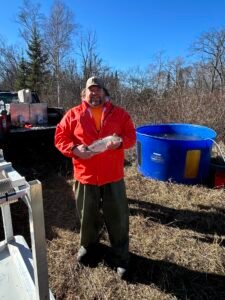 Rusty AIkens: Sault Tribe member and fisheries Enhancement Coordinator for the Sault Tribe of Chippewa Indians. I have been in my current position since 2017 and have worked in the Tribe’s natural resources department since 2010. I graduated from Lake Superior State University with a bachelors degree in fisheries and wildlife management in 2016. Began raising whitefish in 2018.
Rusty AIkens: Sault Tribe member and fisheries Enhancement Coordinator for the Sault Tribe of Chippewa Indians. I have been in my current position since 2017 and have worked in the Tribe’s natural resources department since 2010. I graduated from Lake Superior State University with a bachelors degree in fisheries and wildlife management in 2016. Began raising whitefish in 2018.
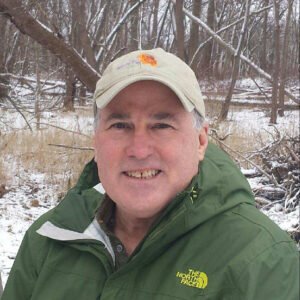 Robert Ayotte is the President of the Michigan Botanical Society. He has a background in natural history interpretation and forest ecology. Over his career has conducted field investigations for the Michigan Natural Features Inventory and the USDA Forest Service. A frequent visitor to Drummond Island, Robert has a long-standing interest in the vegetation and landscape ecology of Maxton Plains Preserve.
Robert Ayotte is the President of the Michigan Botanical Society. He has a background in natural history interpretation and forest ecology. Over his career has conducted field investigations for the Michigan Natural Features Inventory and the USDA Forest Service. A frequent visitor to Drummond Island, Robert has a long-standing interest in the vegetation and landscape ecology of Maxton Plains Preserve.
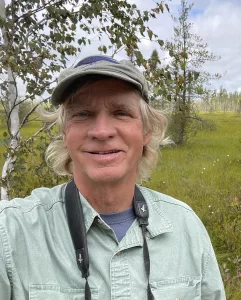 Steve Baker is a retired Veterinarian with a passion for most anything in nature. He has enjoyed birding for over 50 years, especially hawk watches. Botany is a more recent pleasure with orchids and ferns a special interest. Photography, kayaking, foraging wild foods, hiking,and rock hounding are other past times.
Steve Baker is a retired Veterinarian with a passion for most anything in nature. He has enjoyed birding for over 50 years, especially hawk watches. Botany is a more recent pleasure with orchids and ferns a special interest. Photography, kayaking, foraging wild foods, hiking,and rock hounding are other past times.
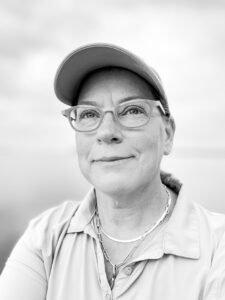 Sue Bakkila was a geography major in college with a focus on cultural geography. This discipline entails continual learning about a place — it’s geologic features, the weather, flora, fauna, and human history — and how everything intersects to better form our understanding of that place. This curiosity plays well with her kayak guiding business, Woods & Waters, here in Hessel. Beyond running Woods & Waters, Sue also does graphic design and photography.
Sue Bakkila was a geography major in college with a focus on cultural geography. This discipline entails continual learning about a place — it’s geologic features, the weather, flora, fauna, and human history — and how everything intersects to better form our understanding of that place. This curiosity plays well with her kayak guiding business, Woods & Waters, here in Hessel. Beyond running Woods & Waters, Sue also does graphic design and photography.
Eowyn Bates bio coming soon.
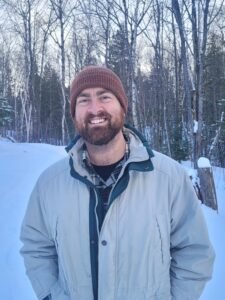 Evan grew up camping, hiking, and getting muddy in southern Wisconsin. After a narrow brush with desk jobs, he decided he’d rather work outside, and has ever since. Evan has led and managed conservation crews in Wisconsin, Michigan, Indiana, and Montana. He enjoys birding, foraging, and looking for fun and unusual plants. His favorite birds are grackles. His favorite flower is trillium. Evan works as the Invasive Species Coordinator for the Chippewa Luce Mackinac Conservation District. He has a degree in Political Science from Hope College and is pursuing his Masters in Biology from the University of Wisconsin.
Evan grew up camping, hiking, and getting muddy in southern Wisconsin. After a narrow brush with desk jobs, he decided he’d rather work outside, and has ever since. Evan has led and managed conservation crews in Wisconsin, Michigan, Indiana, and Montana. He enjoys birding, foraging, and looking for fun and unusual plants. His favorite birds are grackles. His favorite flower is trillium. Evan works as the Invasive Species Coordinator for the Chippewa Luce Mackinac Conservation District. He has a degree in Political Science from Hope College and is pursuing his Masters in Biology from the University of Wisconsin.
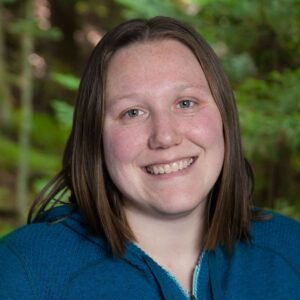 Emily joined The Nature Conservancy (TNC) in May of 2010 and has held various conservation positions in her tenure. As director of land and water management, Emily oversees the management of lands and waters owned by TNC in Michigan, which includes everything from the access roads and trails, streams and lakes to the carbon the trees sequester. Emily also focuses on using our lands and waters to influence and inspire conservation beyond our property boundaries, including engagement with strategic federal, state and tribal partners as well as private family forests to achieve landscape-level goals of TNC.
Emily joined The Nature Conservancy (TNC) in May of 2010 and has held various conservation positions in her tenure. As director of land and water management, Emily oversees the management of lands and waters owned by TNC in Michigan, which includes everything from the access roads and trails, streams and lakes to the carbon the trees sequester. Emily also focuses on using our lands and waters to influence and inspire conservation beyond our property boundaries, including engagement with strategic federal, state and tribal partners as well as private family forests to achieve landscape-level goals of TNC.
Emily graduated from Northern Michigan University with a bachelor of science in environmental science and from Washington State University with a master of science in natural resource science. Outside of work, Emily loves canoeing lakes in the Upper Peninsula with her husband, Kevin and their two kids, Calvin and Heidi, in their 1916 restored wood canvas canoe.
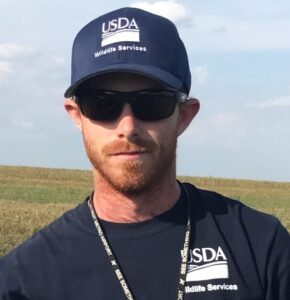 Matthew Curry, born and raised in Oakland County, Michigan. I have worked for USDA-WS Michigan since May of 2016. With family residing in Cedarville, the Les Cheneaux Islands have always been a favorite destination of mine. I’m honored to present the work we do that helps mitigate negative impacts Double-crested cormorants have on natural resources in the area.
Matthew Curry, born and raised in Oakland County, Michigan. I have worked for USDA-WS Michigan since May of 2016. With family residing in Cedarville, the Les Cheneaux Islands have always been a favorite destination of mine. I’m honored to present the work we do that helps mitigate negative impacts Double-crested cormorants have on natural resources in the area.
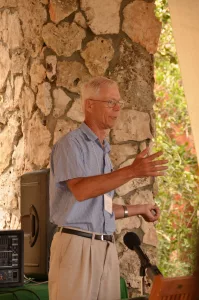 Dr. Dave Ewert has worked on many topics ranging from forest and prairie management to Great Lakes islands, and many bird conservation and research projects, including stopover sites in Les Cheneaux, and Kirtland’s Warblers on the Michigan breeding and Bahamas wintering grounds. Many enjoyable hours have been spent with migrating birds in the Les Cheneaux area. He has been fortunate to work with the American Bird Conservancy, The Nature Conservancy, and on the faculty of the University of Michigan Biological Station and Central Michigan University.
Dr. Dave Ewert has worked on many topics ranging from forest and prairie management to Great Lakes islands, and many bird conservation and research projects, including stopover sites in Les Cheneaux, and Kirtland’s Warblers on the Michigan breeding and Bahamas wintering grounds. Many enjoyable hours have been spent with migrating birds in the Les Cheneaux area. He has been fortunate to work with the American Bird Conservancy, The Nature Conservancy, and on the faculty of the University of Michigan Biological Station and Central Michigan University.
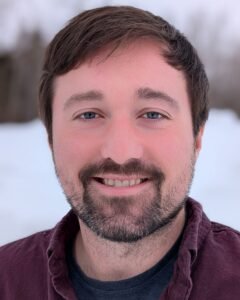 Originally from the Grand Rapids area, Logan Ferguson has had a lifelong interest in ecology and the environment. This interest led him to pursue a career in Natural Resources, and he now works as the Forester at the Chippewa Luce Mackinac Conservation District. Over the course of the past decade or so, Logan has obtained a bachelors degree in Natural Resource Management and a masters degree in Forestry, while also having stints as a seasonal field technician on forestry and botany research projects in Missouri, Texas, and West Virginia. He now works with the Conservation District to help landowners manage their forests, as well as doing public outreach and educational events. During his free time Logan can be found fishing, in the woods foraging for mushrooms, or hitting the trails for a hike, run, or bike ride.
Originally from the Grand Rapids area, Logan Ferguson has had a lifelong interest in ecology and the environment. This interest led him to pursue a career in Natural Resources, and he now works as the Forester at the Chippewa Luce Mackinac Conservation District. Over the course of the past decade or so, Logan has obtained a bachelors degree in Natural Resource Management and a masters degree in Forestry, while also having stints as a seasonal field technician on forestry and botany research projects in Missouri, Texas, and West Virginia. He now works with the Conservation District to help landowners manage their forests, as well as doing public outreach and educational events. During his free time Logan can be found fishing, in the woods foraging for mushrooms, or hitting the trails for a hike, run, or bike ride.
The Friends of Whitefish Point is a non-profit organization committed to fostering avian and natural history research, education and conservation in the Whitefish Point, MI area. Through collaboration with like-minded organizations, we aim to advance meaningful conservation efforts and preserve the region’s natural heritage for future generations.
Presenters
Nova Mackentley, Director
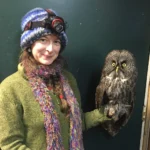 Originally from upstate New York, Nova first came to Michigan as a pianist graduating from Interlochen Arts Academy. From there, it was an adventurous trek through Carnegie Mellon University and Oberlin College, studying abroad in Tanzania and earning her B.A. in Biology. Nova has loved Whitefish Point and the fascinating bird migration from her first minute as an owl bander back in 2005. She has worked with passerines, owls, hawks, parrots, ground squirrels, and ocelots at various field sites worldwide, but the owls always bring her back to Whitefish Point. As a nature photographer, Whitefish Point and its wonders have inspired much of her creative work.
Originally from upstate New York, Nova first came to Michigan as a pianist graduating from Interlochen Arts Academy. From there, it was an adventurous trek through Carnegie Mellon University and Oberlin College, studying abroad in Tanzania and earning her B.A. in Biology. Nova has loved Whitefish Point and the fascinating bird migration from her first minute as an owl bander back in 2005. She has worked with passerines, owls, hawks, parrots, ground squirrels, and ocelots at various field sites worldwide, but the owls always bring her back to Whitefish Point. As a nature photographer, Whitefish Point and its wonders have inspired much of her creative work.
Chris Neri, Owl Banding Manager
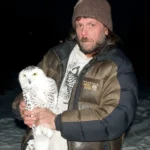 A lifelong birder, Chris became fascinated with owls when he was 8 years old after reading the Hardy Boy’s book “The Clue of the Screeching Owl”. His field research career began in 1990s’ when he was introduced to owl banding at the Cape May Owl Banding Project. Since then he has spent over 70 field seasons working on a variety of avian research projects across the country. He arrived at Whitefish Point as an owl bander in 1999. Chris has co-authored several peer-reviewed papers on owls and he is passionate about documenting all the animals that occur at the Point, with a special interest in moths. As a nature photographer, Whitefish Point provides many opportunities for Chris to capture birds and other wildlife with a camera. He’s excited to bring over two decades of field experience at Whitefish Point to the Friends of Whitefish Point.
A lifelong birder, Chris became fascinated with owls when he was 8 years old after reading the Hardy Boy’s book “The Clue of the Screeching Owl”. His field research career began in 1990s’ when he was introduced to owl banding at the Cape May Owl Banding Project. Since then he has spent over 70 field seasons working on a variety of avian research projects across the country. He arrived at Whitefish Point as an owl bander in 1999. Chris has co-authored several peer-reviewed papers on owls and he is passionate about documenting all the animals that occur at the Point, with a special interest in moths. As a nature photographer, Whitefish Point provides many opportunities for Chris to capture birds and other wildlife with a camera. He’s excited to bring over two decades of field experience at Whitefish Point to the Friends of Whitefish Point.
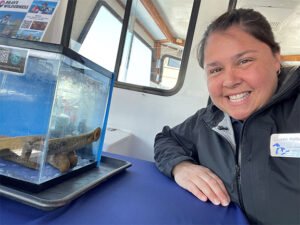 Lauren is a communications associate with the Great Lakes Fishery Commission. She is stationed at Hammond Bay Biological Station along the shore of Lake Huron, near Rogers City, Michigan and has been in her position since 2012. Originally from the east coast, her undergraduate and graduate work in marine biology (UNC – Wilmington; University of Maine – Orono) and education (Western Governors University) made this position a perfect fit since she works closely with both sea lampreys and other Great Lakes fish, as well as the public!
Lauren is a communications associate with the Great Lakes Fishery Commission. She is stationed at Hammond Bay Biological Station along the shore of Lake Huron, near Rogers City, Michigan and has been in her position since 2012. Originally from the east coast, her undergraduate and graduate work in marine biology (UNC – Wilmington; University of Maine – Orono) and education (Western Governors University) made this position a perfect fit since she works closely with both sea lampreys and other Great Lakes fish, as well as the public!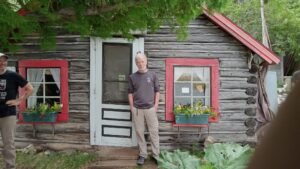 Jeffrey Holden’s first backpacking trip was in 1976 when he and two friends hiked in the Smoky Mountains with external frame packs, clunky gear, cotton clothing, all in tennis shoes. They experienced 16 separate thunderstorms in 8 days, were constantly wet, had several black bear encounters, and learned to hate dried apricots. They called it a grueling ordeal. And Jeffrey loved it (Type 2 fun) and has been hiking ever since.
Jeffrey Holden’s first backpacking trip was in 1976 when he and two friends hiked in the Smoky Mountains with external frame packs, clunky gear, cotton clothing, all in tennis shoes. They experienced 16 separate thunderstorms in 8 days, were constantly wet, had several black bear encounters, and learned to hate dried apricots. They called it a grueling ordeal. And Jeffrey loved it (Type 2 fun) and has been hiking ever since.
Jeffrey M. Holden is the author of Dead Moose on Isle Royale, a 2026 Notable Book of Michigan award winner. He has been associated with the Wolf-Moose Project since 2002 and has been a group leader since 2005.
He is the president of Wolf-Moose Foundation, a nonprofit whose mission is to advance research and education that promotes the conservation of preditors and thier prey, especially wolves and moose of Isle Royale.
Jeff has spent most of this professional career as a healthcare data guy in southeast Michigan where he lives with his wife Sandra and clowder of cats. He has degrees from Michigan State University and the University of Michigan.
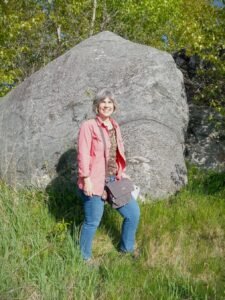 Recycling has been a lifelong interest for me, but it wasn’t until the summer of 2022 that an old air conditioner in the back of my car sparked an idea that grew into the creation of Reina Recycling, a nonprofit electronics recycling center. That air conditioner was a monster, at least sixty pounds, and when I took it to the scrap yard, they told me I needed to have it drained and tagged before they could take it. They suggested who would do that for me, and for a $40 fee, I was able to have it safely recycled and free up that space in the back of my car again. It occurred to me, though, that not everyone could or would pay that fee, and hard-to-dispose-of stuff would end up in places it shouldn’t be, like in the forests and lakes. That’s when the idea took hold of me to provide a convenient place to bring old electronics and appliances for recycling, and the fascinating journey of learning, networking, and planning began. With the help of Northern Transitions, my husband, Chuck, and I opened the current collection center in the spring of 2023, and we’ve been organizing, expanding, making mistakes and learning from them, and meeting a lot of great people along the way. Our goal for the future is to focus more on repair and resale and to create recycling and STEAM education programs. It’s an ongoing adventure, and I wouldn’t miss a minute of it! Even though this project has sometimes been overwhelming, my background as a small business owner has helped to prepare me for the voyage. My family and I opened The Doggie Bed & Breakfast in 2002 to provide dog boarding services in the area. Education has always been an important part of my life, also, and I’ve worked here and there as an English, Spanish, and ESL tutor, as well as providing volunteer Spanish-to-English translation services for the crowdfunding microloan nonprofit, Kiva.org.Bio coming soon.
Recycling has been a lifelong interest for me, but it wasn’t until the summer of 2022 that an old air conditioner in the back of my car sparked an idea that grew into the creation of Reina Recycling, a nonprofit electronics recycling center. That air conditioner was a monster, at least sixty pounds, and when I took it to the scrap yard, they told me I needed to have it drained and tagged before they could take it. They suggested who would do that for me, and for a $40 fee, I was able to have it safely recycled and free up that space in the back of my car again. It occurred to me, though, that not everyone could or would pay that fee, and hard-to-dispose-of stuff would end up in places it shouldn’t be, like in the forests and lakes. That’s when the idea took hold of me to provide a convenient place to bring old electronics and appliances for recycling, and the fascinating journey of learning, networking, and planning began. With the help of Northern Transitions, my husband, Chuck, and I opened the current collection center in the spring of 2023, and we’ve been organizing, expanding, making mistakes and learning from them, and meeting a lot of great people along the way. Our goal for the future is to focus more on repair and resale and to create recycling and STEAM education programs. It’s an ongoing adventure, and I wouldn’t miss a minute of it! Even though this project has sometimes been overwhelming, my background as a small business owner has helped to prepare me for the voyage. My family and I opened The Doggie Bed & Breakfast in 2002 to provide dog boarding services in the area. Education has always been an important part of my life, also, and I’ve worked here and there as an English, Spanish, and ESL tutor, as well as providing volunteer Spanish-to-English translation services for the crowdfunding microloan nonprofit, Kiva.org.Bio coming soon.
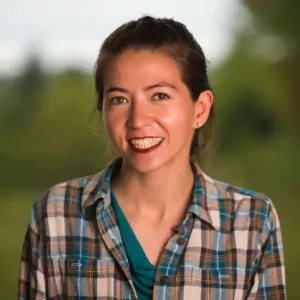 Amy Lipson joined Little Traverse Conservancy in April 2021 in the new position of Conservation Specialist. She moved to Alanson from Ann Arbor, where she attended the University of Michigan and met her husband, Joe. She studied plant biology there and realized she wanted to pursue a career in conservation while working for the university arboretum. After graduating, she worked for Ann Arbor’s Parks and Recreation Department at Natural Area Preservation, first as a Conservation Worker, then as a Conservation Crew Leader. She and her husband enjoy spending time outdoors with their dog Mica.
Amy Lipson joined Little Traverse Conservancy in April 2021 in the new position of Conservation Specialist. She moved to Alanson from Ann Arbor, where she attended the University of Michigan and met her husband, Joe. She studied plant biology there and realized she wanted to pursue a career in conservation while working for the university arboretum. After graduating, she worked for Ann Arbor’s Parks and Recreation Department at Natural Area Preservation, first as a Conservation Worker, then as a Conservation Crew Leader. She and her husband enjoy spending time outdoors with their dog Mica.
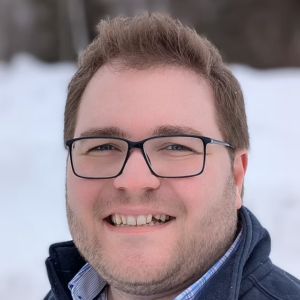 Mike McCarthy joined the Conservation District in the summer of 2013 as the District’s MAEAP Technician. Mike served in that role until 2017 and now serves as the Executive Director. Mike holds a bachelor’s degree from Lake Superior State University in Conservation Leadership and a master’s degree from Slippery Rock University in Parks and Resource Management. Mike has held previous positions with Michigan State University Extension, Montcalm Conservation District, US Fish and Wildlife Service, and Lake Superior State University. In his free time Mike and his wife Karen enjoy traveling, visiting with friends and family, and spending time outdoors (biking, camping, hiking, kayaking, and skiing).
Mike McCarthy joined the Conservation District in the summer of 2013 as the District’s MAEAP Technician. Mike served in that role until 2017 and now serves as the Executive Director. Mike holds a bachelor’s degree from Lake Superior State University in Conservation Leadership and a master’s degree from Slippery Rock University in Parks and Resource Management. Mike has held previous positions with Michigan State University Extension, Montcalm Conservation District, US Fish and Wildlife Service, and Lake Superior State University. In his free time Mike and his wife Karen enjoy traveling, visiting with friends and family, and spending time outdoors (biking, camping, hiking, kayaking, and skiing).
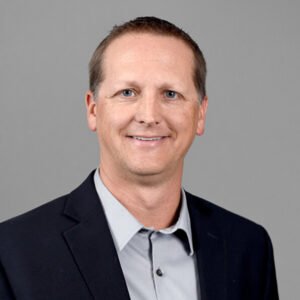 Dr. Kevin McGraw is chairperson and professor of integrative biology at Michigan State University. He leads an international research team of behavioral ecologists who study the colors of animals like birds to understand the costs, benefits, and evolution of visual signals. They employ a variety of biochemical, nutritional, physiological, immunological, and endocrinological methods to determine the factors that control color intensity, and couple these approaches with behavioral, ecological, and evolutionary studies, both in the field and the lab, to comprehensively evaluate how and why animal colors function in visual communication. The group’s taxonomic interests continue to expand to diverse avian groups (e.g. hummingbirds, parrots) and to other colorful creatures like spiders, lizards, and butterflies.
Dr. Kevin McGraw is chairperson and professor of integrative biology at Michigan State University. He leads an international research team of behavioral ecologists who study the colors of animals like birds to understand the costs, benefits, and evolution of visual signals. They employ a variety of biochemical, nutritional, physiological, immunological, and endocrinological methods to determine the factors that control color intensity, and couple these approaches with behavioral, ecological, and evolutionary studies, both in the field and the lab, to comprehensively evaluate how and why animal colors function in visual communication. The group’s taxonomic interests continue to expand to diverse avian groups (e.g. hummingbirds, parrots) and to other colorful creatures like spiders, lizards, and butterflies.
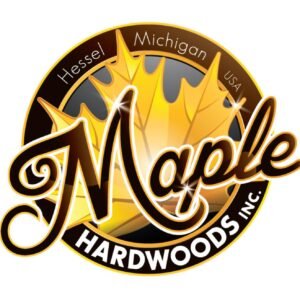 Family-owned and operated, Maple Hardwoods, Inc. has become a leading example of innovation and perseverance in Michigan’s timber industry. Co-owners and father-and-son team Luke and Andrew Jaroche began envisioning the expansion of their Hessel sawmill in 2015. After years of careful planning and determination, that vision became reality with the grand opening of their new $14 million facility this past August.
Family-owned and operated, Maple Hardwoods, Inc. has become a leading example of innovation and perseverance in Michigan’s timber industry. Co-owners and father-and-son team Luke and Andrew Jaroche began envisioning the expansion of their Hessel sawmill in 2015. After years of careful planning and determination, that vision became reality with the grand opening of their new $14 million facility this past August.
The expansion represents a significant investment in the Eastern Upper Peninsula, creating new jobs and strengthening year-round economic opportunity in the region. At a time when many timber businesses are closing their doors, Maple Hardwoods has continued to grow—welcoming skilled workers from across northern Michigan and providing housing and flexible opportunities to support their workforce.
Rooted in responsible forestry, Maple Hardwoods is dedicated to maximizing the use of every tree it processes—utilizing each part of the resource, from lumber to sawdust. With an eye toward sustainability and optimization of the region’s abundant timberlands, the company continues to look ahead to future growth and innovation.
During the Aldo Leopold Festival, Maple Hardwoods is proud to offer a tour of its expanded mill facility, welcoming the community to see firsthand how thoughtful resource management and local manufacturing are shaping the future of the Eastern Upper Peninsula.
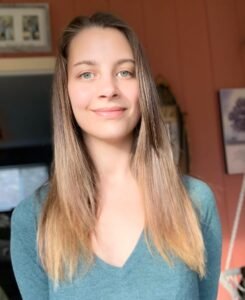 Marquita Mullen is the Special Projects Technician for Chippewa Luce Mackinac Conservation District. Marquita earned her Bachelor’s degree in Environmental Studies and Sustainability from Northern Michigan University in 2016. Marquita also completed 200 h “Be the Love” Yoga Training in 2020, which has lent way to her involvement in mindfulness practices and meditation. Being able to combine her love for nature and yoga has been a lifelong dream for Marquita and something she looks forward to sharing with everyone at Aldo Leopold Festival.
Marquita Mullen is the Special Projects Technician for Chippewa Luce Mackinac Conservation District. Marquita earned her Bachelor’s degree in Environmental Studies and Sustainability from Northern Michigan University in 2016. Marquita also completed 200 h “Be the Love” Yoga Training in 2020, which has lent way to her involvement in mindfulness practices and meditation. Being able to combine her love for nature and yoga has been a lifelong dream for Marquita and something she looks forward to sharing with everyone at Aldo Leopold Festival.
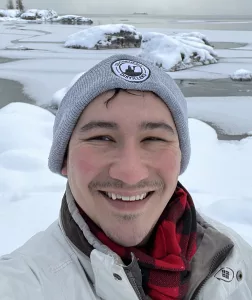 Elliot Nelson is an Extension Educator with Michigan Sea Grant and MSU Extension. Elliot works with coastal communities and businesses in the Eastern Upper Peninsula to apply science-based knowledge to address Great Lakes, Lake Superior, northern Lake Michigan, and northern Lake Huron issues.
Elliot Nelson is an Extension Educator with Michigan Sea Grant and MSU Extension. Elliot works with coastal communities and businesses in the Eastern Upper Peninsula to apply science-based knowledge to address Great Lakes, Lake Superior, northern Lake Michigan, and northern Lake Huron issues.
Elliot’s focus areas include K-12 Great Lakes and aquaculture education, tourism development around birding and water, and aquaculture consumer and producer programs.
Elliot lives in Pickford, Michigan with his wife, 3 kids and 2 dogs. In his (limited) free time he enjoys birding, kayaking, biking and eating good food.
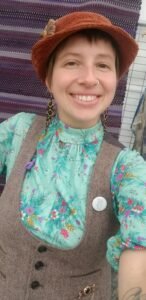 Weaver, natural dyer, zine maker, loom doctor, teacher, and lifelong learner, Jasmine Petrie of Howl at the Moon resides in the forests of her childhood in Northern Lower Michigan. She enjoys spending time with family, tending garden, being in nature, and occassionally traveling afar.
Weaver, natural dyer, zine maker, loom doctor, teacher, and lifelong learner, Jasmine Petrie of Howl at the Moon resides in the forests of her childhood in Northern Lower Michigan. She enjoys spending time with family, tending garden, being in nature, and occassionally traveling afar.
 Wil Reding retired in 2018 from teaching Environmental Studies at Western Michigan University and Biology at Kalamazoo Valley Community College His company “Rent A Rambling Naturalist” has provided interpretive naturalist programs around the world since 1988. He believes his interest in the natural comes from his growing up on a farm in southeast lower Michigan. He follows the statement of John Muir, “I care to live only to entice people to look at Nature!”
Wil Reding retired in 2018 from teaching Environmental Studies at Western Michigan University and Biology at Kalamazoo Valley Community College His company “Rent A Rambling Naturalist” has provided interpretive naturalist programs around the world since 1988. He believes his interest in the natural comes from his growing up on a farm in southeast lower Michigan. He follows the statement of John Muir, “I care to live only to entice people to look at Nature!”
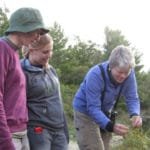 Sarah Reding retired from a 28-year career with the Kalamazoo Nature Center, where she led the Conservation Stewardship and Outreach education programs. She is trained as an Interpretive naturalist, Environmental educator, and guide. Sarah has been a birdwatcher most of her life, getting her inspiration for birds on a high school trip to Hawk Mountain Sanctuary. Sarah leads kayak and hiking trips for Woods and Waters in the Les Cheneaux islands. She loves to share the natural world with all ages. In 2022, Sarah became the new Hawk Naturalist for Mackinac Straits Raptor Watch.
Sarah Reding retired from a 28-year career with the Kalamazoo Nature Center, where she led the Conservation Stewardship and Outreach education programs. She is trained as an Interpretive naturalist, Environmental educator, and guide. Sarah has been a birdwatcher most of her life, getting her inspiration for birds on a high school trip to Hawk Mountain Sanctuary. Sarah leads kayak and hiking trips for Woods and Waters in the Les Cheneaux islands. She loves to share the natural world with all ages. In 2022, Sarah became the new Hawk Naturalist for Mackinac Straits Raptor Watch.
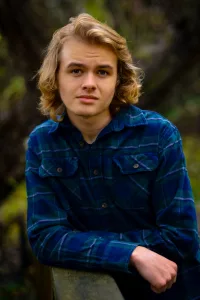 Talus Rutgers is from Kalamazoo, MI, where he is currently working towards a degree in Biology from Western Michigan University. His passion in butterflies was lit by his grandma, a lepidopterologist for the Kalamazoo Nature Center, as well as things like birding and plants. He currently works as a field technician for an environmental consulting firm.
Talus Rutgers is from Kalamazoo, MI, where he is currently working towards a degree in Biology from Western Michigan University. His passion in butterflies was lit by his grandma, a lepidopterologist for the Kalamazoo Nature Center, as well as things like birding and plants. He currently works as a field technician for an environmental consulting firm.
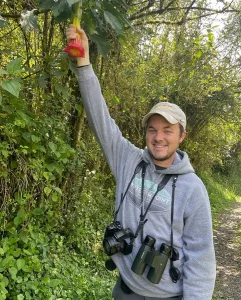 Chace Scholten is a biologist from Holland, Michigan. His birding passion began in middle school, and he has since traveled throughout the US and the world to seek out these feathered creatures. He graduated from Calvin University in Grand Rapids, MI in 2018, and served on the Michigan Bird Records Committee from 2019 to 2023. More recently, he has enjoyed branching out into other animals and plants. Currently, he works as an environmental consultant, assisting with developments including green energy.
Chace Scholten is a biologist from Holland, Michigan. His birding passion began in middle school, and he has since traveled throughout the US and the world to seek out these feathered creatures. He graduated from Calvin University in Grand Rapids, MI in 2018, and served on the Michigan Bird Records Committee from 2019 to 2023. More recently, he has enjoyed branching out into other animals and plants. Currently, he works as an environmental consultant, assisting with developments including green energy.
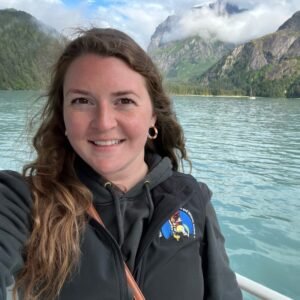 Katie Schultz is the Wildlife Program Manager for the Sault Ste. Marie Tribe of Chippewa Indians . She holds a Bachelor’s in Biology from Saginaw Valley State University and a Master’s in Wildlife and Fisheries Resource from Clemson University. She grew up in the Upper Peninsula and enjoys spending her free time hunting, fishing, hiking and camping with her fiance, two pups, family and friends.
Katie Schultz is the Wildlife Program Manager for the Sault Ste. Marie Tribe of Chippewa Indians . She holds a Bachelor’s in Biology from Saginaw Valley State University and a Master’s in Wildlife and Fisheries Resource from Clemson University. She grew up in the Upper Peninsula and enjoys spending her free time hunting, fishing, hiking and camping with her fiance, two pups, family and friends.
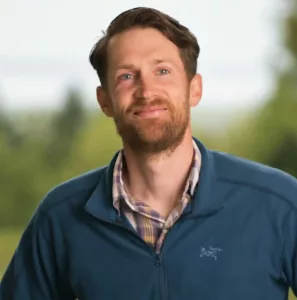 Derek Shiels is the Stewardship Director at Little Traverse Conservancy. A native of Rockford, Michigan, Derek spent his childhood exploring a large parcel of wild land right near his home, prompting an early desire for a career in the outdoors. Derek spent a semester in Wyoming with the National Outdoor Leadership School (NOLS), holds a B.S. in Natural Resource Management from Grand Valley State University, a Master’s Degree in Environmental Science from Taylor University, and a Master’s in Biology from Central Michigan University with an emphasis in Plant Systematics. He spent two years in Missouri working for the Missouri Department of Conservation as a cave biology technician monitoring endangered gray bats and crawling, canoeing, and rappelling into caves to document other cave life. Before coming to Little Traverse Conservancy, he worked with the Leelanau Conservancy’s Invasive Species Team.
Derek Shiels is the Stewardship Director at Little Traverse Conservancy. A native of Rockford, Michigan, Derek spent his childhood exploring a large parcel of wild land right near his home, prompting an early desire for a career in the outdoors. Derek spent a semester in Wyoming with the National Outdoor Leadership School (NOLS), holds a B.S. in Natural Resource Management from Grand Valley State University, a Master’s Degree in Environmental Science from Taylor University, and a Master’s in Biology from Central Michigan University with an emphasis in Plant Systematics. He spent two years in Missouri working for the Missouri Department of Conservation as a cave biology technician monitoring endangered gray bats and crawling, canoeing, and rappelling into caves to document other cave life. Before coming to Little Traverse Conservancy, he worked with the Leelanau Conservancy’s Invasive Species Team.
 Kunal Singh is a Mining Engineer, Team Lead for the Great Lakes Quarries at Carmeuse in Roger City, Michigan. He does mine planning and engineering for both the Roger City and Cedarville quarries and supervises 3 additional quarries. He holds a BS in Mining Engineering from Indian School of Mines and a MS from Southern Illinois University, Carbondale, Illinois. Most of his career has been in Hard Rock Drilling for Atlas Copco; Underground and Surface Underground coal mining for Peabody and Prairie State Generating Co. and Surface Limestone for Carmeuse.
Kunal Singh is a Mining Engineer, Team Lead for the Great Lakes Quarries at Carmeuse in Roger City, Michigan. He does mine planning and engineering for both the Roger City and Cedarville quarries and supervises 3 additional quarries. He holds a BS in Mining Engineering from Indian School of Mines and a MS from Southern Illinois University, Carbondale, Illinois. Most of his career has been in Hard Rock Drilling for Atlas Copco; Underground and Surface Underground coal mining for Peabody and Prairie State Generating Co. and Surface Limestone for Carmeuse.
Outside of his job, he enjoys staying active, and practices the ancient Indian vodic yogic kriyas and meditation for healing to keep mind and body healthy and positive. He also enjoys watching movies and traveling.
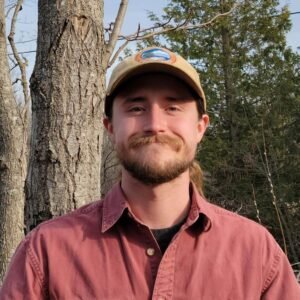 Quinn was born and raised in mid-Michigan and grew up camping, fishing, catching snakes, watching birds, and spending as much time as possible outside. As the son of a pair of naturalists, he began birding before he was able to walk. He attended the University of Michigan Flint campus and received a Bachelor’s in Biology with a concentration in field studies. Quinn began working at LTC as a Conservation Technician in May of 2024 and has worked with our ECAR program, conducting forest inventories as well as bird, butterfly, and rare plant surveys. When he’s not in a forest or a bog, you may find him leaning over a microscope working on a tricky liverwort ID or trying to see the scales on a fast-moving gastrotrich.
Quinn was born and raised in mid-Michigan and grew up camping, fishing, catching snakes, watching birds, and spending as much time as possible outside. As the son of a pair of naturalists, he began birding before he was able to walk. He attended the University of Michigan Flint campus and received a Bachelor’s in Biology with a concentration in field studies. Quinn began working at LTC as a Conservation Technician in May of 2024 and has worked with our ECAR program, conducting forest inventories as well as bird, butterfly, and rare plant surveys. When he’s not in a forest or a bog, you may find him leaning over a microscope working on a tricky liverwort ID or trying to see the scales on a fast-moving gastrotrich.
 Kevin St. Onge – As the EUP STEM Region director, Kevin works to improve STEM education in Chippewa, Luce, and Mackinac Counties. The EUP STEM Region connects K-12 education, higher education, business/industry leaders, government agencies, and non-profits to engage in collaborative efforts in support of the four MiSTEM Pillars.Kevin had experience as an environmental scientist in the private sector prior to becoming a science teacher in the EUP. He then began working at the EUPISD as the EUP Math and Science Center director prior to the formation of the EUP STEM Region. Working with an amazing group of regional educators while collaborating with statewide partners has provided an outstanding learning experience. The current partnership with the MiSTEM Network and regional partners through the EUP STEM Advisory Council has provided the opportunity to connect education and our regional workforce. Contact for: EUP STEM RegionEUP STEM Advisory CouncilSTEM Integrated Learning TeamsMiSTEM NetworkNext Generation Science ExemplarCereal City ScienceFoundations of MathEUP Regional Science and Engineering Fair, Pi Day, and Trig Star
Kevin St. Onge – As the EUP STEM Region director, Kevin works to improve STEM education in Chippewa, Luce, and Mackinac Counties. The EUP STEM Region connects K-12 education, higher education, business/industry leaders, government agencies, and non-profits to engage in collaborative efforts in support of the four MiSTEM Pillars.Kevin had experience as an environmental scientist in the private sector prior to becoming a science teacher in the EUP. He then began working at the EUPISD as the EUP Math and Science Center director prior to the formation of the EUP STEM Region. Working with an amazing group of regional educators while collaborating with statewide partners has provided an outstanding learning experience. The current partnership with the MiSTEM Network and regional partners through the EUP STEM Advisory Council has provided the opportunity to connect education and our regional workforce. Contact for: EUP STEM RegionEUP STEM Advisory CouncilSTEM Integrated Learning TeamsMiSTEM NetworkNext Generation Science ExemplarCereal City ScienceFoundations of MathEUP Regional Science and Engineering Fair, Pi Day, and Trig Star
Bio coming soon.
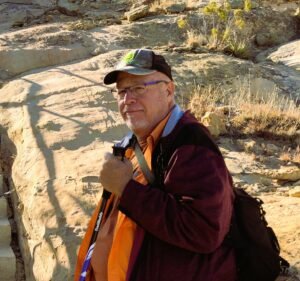 Steven Wade Veatch is a geologist, educator, and writer known for his work in paleontology, mineralogy, and the history of geology, particularly in the Pikes Peak region of Colorado. With a lifelong passion for earth sciences, Veatch has contributed extensively to research on fossils, rocks, and minerals, as well as the rich mining history of Colorado. He has authored numerous scientific papers, articles, and educational materials, blending his expertise in geology with a deep appreciation for storytelling. A dedicated educator, Veatch has taught geology and paleontology courses, inspiring students and professionals alike. His work often bridges the gap between scientific research and public engagement, making complex geological topics accessible to a wider audience.
Steven Wade Veatch is a geologist, educator, and writer known for his work in paleontology, mineralogy, and the history of geology, particularly in the Pikes Peak region of Colorado. With a lifelong passion for earth sciences, Veatch has contributed extensively to research on fossils, rocks, and minerals, as well as the rich mining history of Colorado. He has authored numerous scientific papers, articles, and educational materials, blending his expertise in geology with a deep appreciation for storytelling. A dedicated educator, Veatch has taught geology and paleontology courses, inspiring students and professionals alike. His work often bridges the gap between scientific research and public engagement, making complex geological topics accessible to a wider audience.
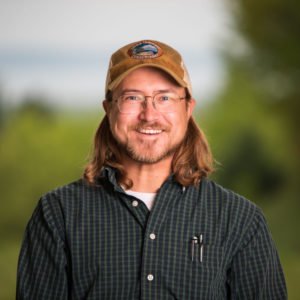 Brad Von Blon grew up in Ohio but quickly escaped to neighboring states with more exciting flora. He earned an Associates Degree in Wildlife Management at Hocking College before transferring to West Virginia University for a Bachelor’s in Wildlife & Fisheries Resources. Much of his time has been spent anywhere outdoors from the arid ridge tops of the Appalachians down to the humid muskegs of Michigan, usually looking for rare plants. He’s worked mainly as a naturalist, but also has experience as a bobcat necropsy technician, and as a tech at West Virginia’s largest herbarium. He fell in love with the North Woods after spending a season in the UP at Seney National Wildlife Refuge, and this will be his fifth season with the Little Traverse Conservancy.
Brad Von Blon grew up in Ohio but quickly escaped to neighboring states with more exciting flora. He earned an Associates Degree in Wildlife Management at Hocking College before transferring to West Virginia University for a Bachelor’s in Wildlife & Fisheries Resources. Much of his time has been spent anywhere outdoors from the arid ridge tops of the Appalachians down to the humid muskegs of Michigan, usually looking for rare plants. He’s worked mainly as a naturalist, but also has experience as a bobcat necropsy technician, and as a tech at West Virginia’s largest herbarium. He fell in love with the North Woods after spending a season in the UP at Seney National Wildlife Refuge, and this will be his fifth season with the Little Traverse Conservancy.
 Tom Walker grew up in the Eastern Upper Peninsula, spending hours wandering in the woods around DeTour Village. The North Country Trail Association provided a way for him to share his love for the outdoors with others, via a pathway that gives access to interesting things that can be found in the outdoors.
Tom Walker grew up in the Eastern Upper Peninsula, spending hours wandering in the woods around DeTour Village. The North Country Trail Association provided a way for him to share his love for the outdoors with others, via a pathway that gives access to interesting things that can be found in the outdoors.
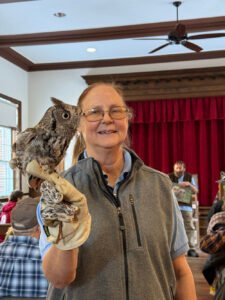 Wildlife Recovery Association was incorporated in 1979 to provide services for and about wildlife and promote a better understanding of their needs. We provide quality educational outreach programs with live birds of prey, participate in research and management programs to support rare and endangered species, and provide care for orphaned and injured hawks, owls, eagles, and falcons. We also manage a wetland sanctuary to protect an ecosystem focused on rare and sensitive species.
Wildlife Recovery Association was incorporated in 1979 to provide services for and about wildlife and promote a better understanding of their needs. We provide quality educational outreach programs with live birds of prey, participate in research and management programs to support rare and endangered species, and provide care for orphaned and injured hawks, owls, eagles, and falcons. We also manage a wetland sanctuary to protect an ecosystem focused on rare and sensitive species.
This organization has been the live owl presenters at the Snowy Owl Festival held the first weekend in February at the Hessel School House.
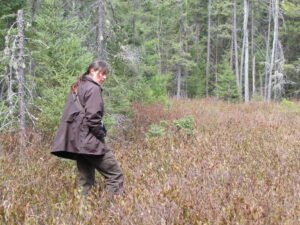
Jennifer Wycoff is a Visitor Services Park Ranger & Volunteer Coordinator for Seney National Wildlife Refuge. Years ago, Jen unknowingly started a career in “Parks & Recreation” cleaning toilets at Indian Springs Metro Park. The naturalists at that site, along with childhood experiences, family role models and a university mentor played strong roles in her choice to earn a B.S. in Outdoor Recreation from Northern Michigan University. She found her way back to the UP after seasonal job experiences with city, state, and national parks and landed a permanent seasonal position at Seney National Wildlife Refuge. She has felt no reason to leave. Jen feels fortunate to work surrounded by wetlands and wildlife and loves being able to share this wonderful place with others.
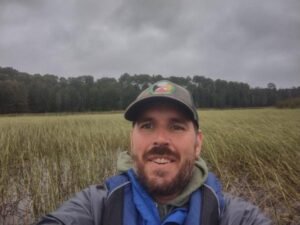 Frank Zomer, Inland Fisheries Biologist for the Bay Mills Indian Community, leads the manoomin restoration program for the tribe. He also is active in the restoration of manoomin statewide as the co-chair of the Michigan Wild Rice Initiative which brings together all 12 Michigan Tribes and state and federal agencies to promote and protect manoomin in Michigan. Frank enjoys spending time outdoors in Michigan’s beautiful Upper Peninsula with his wife and three children.
Frank Zomer, Inland Fisheries Biologist for the Bay Mills Indian Community, leads the manoomin restoration program for the tribe. He also is active in the restoration of manoomin statewide as the co-chair of the Michigan Wild Rice Initiative which brings together all 12 Michigan Tribes and state and federal agencies to promote and protect manoomin in Michigan. Frank enjoys spending time outdoors in Michigan’s beautiful Upper Peninsula with his wife and three children.